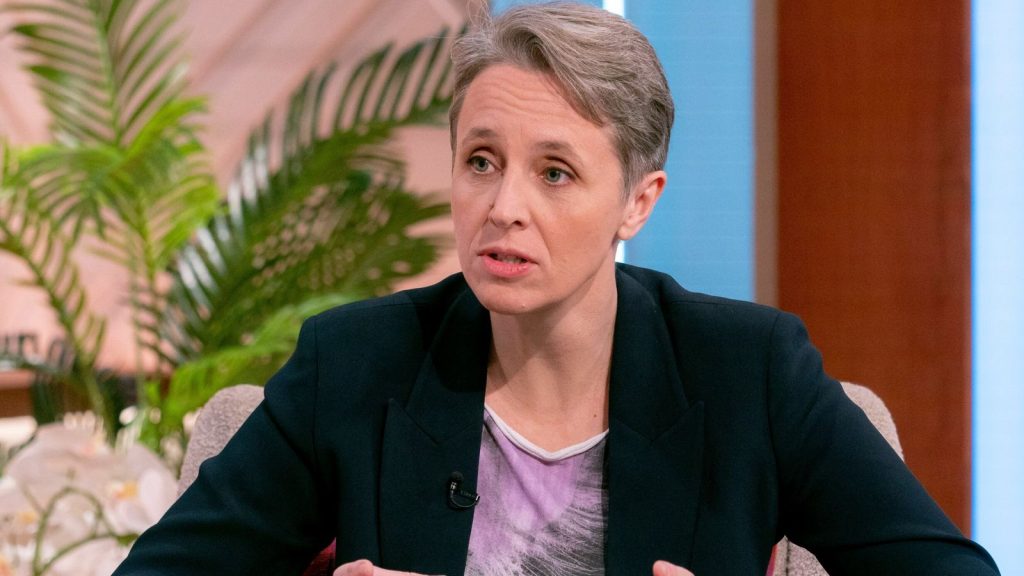University of Sussex Fined £585,000 for Free Speech Violation.
The University of Sussex has been fined a record £585,000 by the Office for Students (OfS) after failing to uphold free speech on its campus. The penalty stems from the university’s handling of feminist professor Kathleen Stock, who was forced out of her position in 2021 after facing accusations of transphobia.
Stock’s controversial views on biological sex and gender identity led to protests and a campaign against her, ultimately leading to her resignation. The fine, the largest ever issued to a university in the UK, highlights the tensions between protecting academic freedom and adhering to inclusive policies on gender equality.
Free Speech vs. Institutional Policies: The Legal Controversy
The fine was imposed after the OfS concluded that the University of Sussex’s policies on "Trans and Non-Binary equality" were likely to stifle free speech. The university's stance, which required staff to “positively represent trans people” and labeled “transphobic propaganda” as unacceptable, was found to create a chilling effect, discouraging staff and students from expressing dissenting opinions. The OfS argued that this policy undermined academic freedom and could have led to the self-censorship of those who disagreed with the university’s stance on gender identity.
Kathleen Stock’s outspoken opposition to gender self-identification and her defense of single-sex spaces for women were at the heart of the controversy. The OfS found that her resignation was, in part, due to a fear of retribution for expressing these views. This case raises important questions about the balance between academic freedom and institutional policies aimed at creating safe, inclusive spaces for students.
The Legal Implications of the OfS Ruling
The ruling by the OfS has raised significant legal concerns for universities across the UK. It draws attention to the ongoing debate over free speech in academic settings and the need for institutions to strike a balance between promoting inclusion and protecting the right to free expression. The OfS’s investigation found that the university’s policies may have violated legal protections afforded to staff and students under the European Convention on Human Rights, particularly the right to freedom of expression.
The outcome of this case may have far-reaching implications for university policies in the UK and beyond. Legal experts are closely watching the legal challenge launched by the University of Sussex, which has vowed to contest the OfS’s findings. If the fine stands, it may set a precedent for future cases involving free speech and academic freedom in higher education.
Stock’s Ongoing Struggles: Academic Freedom Under Attack
Since her departure from the University of Sussex, Professor Kathleen Stock has continued to face backlash for her gender-critical views. She remains a vocal advocate for free speech and academic freedom, despite ongoing criticism. In May 2023, Stock gave a controversial talk at the Oxford Union, where she was met with protests from trans activists. The experience highlighted the continuing tension between Stock’s right to express her views and the vocal opposition from those who consider her beliefs transphobic.
Stock’s case has sparked broader discussions about the limits of free speech in academia, with many arguing that her treatment represents a troubling example of “cancel culture.” Despite facing significant public pressure, Stock continues to defend her right to express her beliefs, stressing the importance of free speech in academic and public life.
The Future of Free Speech in Universities: Legal and Ethical Implications
The fine imposed on the University of Sussex has significant implications for the future of free speech in UK universities. Institutions are increasingly under pressure to create inclusive environments while also safeguarding the right of individuals to express controversial or unpopular opinions. The OfS ruling reflects the growing importance of ensuring that academic freedom is protected, even when views expressed by staff or students are at odds with prevailing social norms.
As universities navigate these complex issues, legal precedents like this one will play a crucial role in shaping policies surrounding free speech and academic freedom. The outcome of the University of Sussex’s legal challenge could help define the limits of institutional power in regulating speech, setting a key precedent for future cases.
A Crossroads for Free Speech in Higher Education
In conclusion, the University of Sussex’s fine for failing to protect free speech highlights the ongoing challenges that academic institutions face when trying to balance inclusivity with academic freedom. The legal case involving Kathleen Stock serves as a reminder of the importance of protecting the rights of individuals to express their beliefs, even when those beliefs are controversial. The outcome of this case will likely have a lasting impact on university policies and could reshape the future of free speech in academic institutions worldwide.
As the University of Sussex continues to challenge the OfS ruling, it is clear that this case will be closely watched by universities, legal experts, and free speech advocates alike. The tension between academic freedom and institutional inclusivity remains a complex issue, but it is one that will likely continue to shape the landscape of higher education for years to come.
Key Legal Issues in the University of Sussex Case
-
Freedom of Expression: The core legal issue is whether the university's policies infringed on the right to free speech, a fundamental right protected under the European Convention on Human Rights and UK law. The university’s policies, which included requiring staff to “positively represent trans people,” were criticized for potentially discouraging individuals from expressing dissenting views on controversial issues like gender identity.
-
Academic Freedom: Academic freedom ensures that scholars can pursue and teach their work without fear of retribution. Professor Kathleen Stock altered her teaching due to concerns about disciplinary action, raising questions about whether the university’s policies violated her right to academic freedom.
-
University Policies vs. Legal Obligations: The university’s policies on “Trans and Non-Binary equality” were seen as conflicting with legal duties to uphold free speech. The OfS found that the policies may have caused a chilling effect, preventing open discussions and potentially infringing on individual rights to express differing views.
-
Self-Censorship: The fear of disciplinary consequences led to self-censorship among staff and students, a legal concern under free speech protections. The case questions whether university policies can restrict speech to the point of discouraging individuals from expressing their views.
-
Chilling Effect: The OfS expressed concern that the policies caused a chilling effect, where individuals refrained from sharing their opinions out of fear of backlash. This could be seen as a violation of free speech rights, particularly in an academic environment.
-
Legal Precedents and Institutional Responsibilities: This case raises questions about the broader responsibilities of universities in balancing inclusivity with free speech. The outcome may set a legal precedent for how universities should navigate these competing interests.
In summary, the case involves the complex issue of balancing anti-discrimination policies with the legal protection of free speech and academic freedom. The legal concerns stem from whether university policies crossed a line that infringes upon these fundamental rights.





















